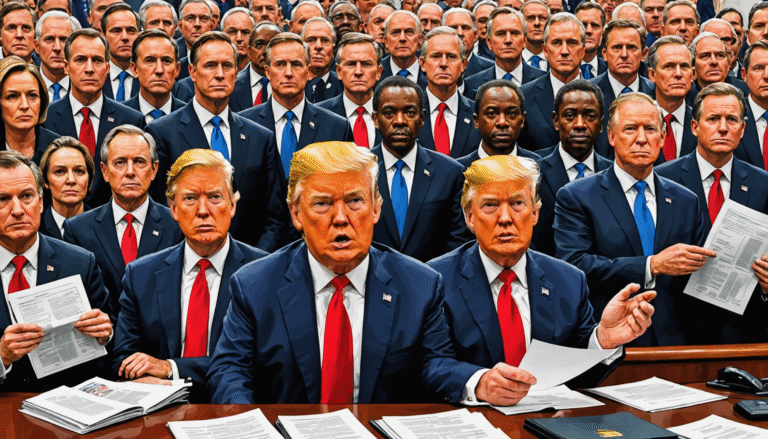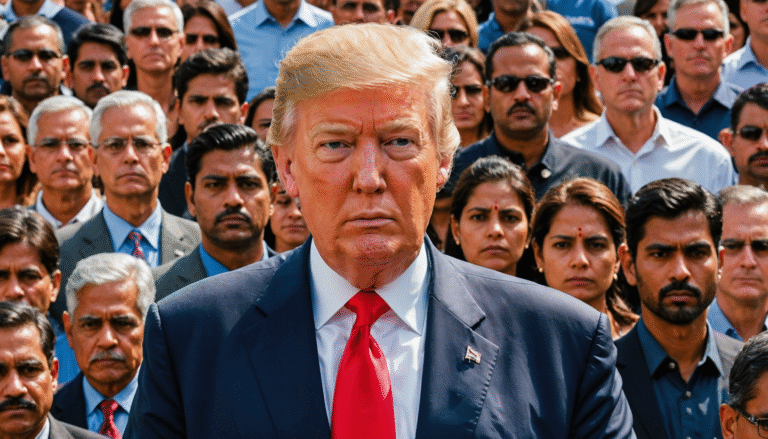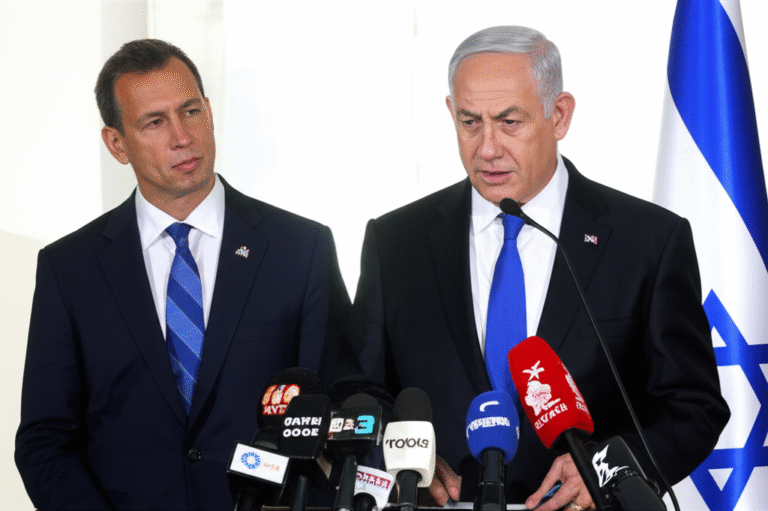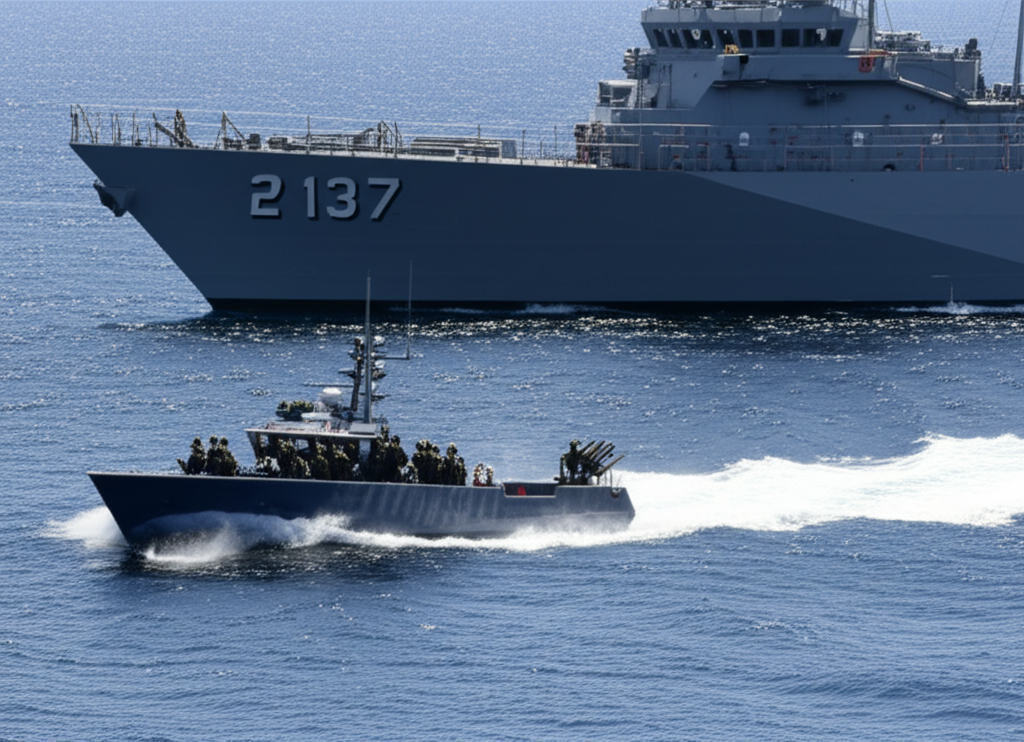
A significant announcement by President Trump has revealed a U.S. military strike on a second Venezuelan drug-trafficking boat. This action, part of an ongoing U.S. response to drug trafficking in the region, represents a notable increase in the intensity and scope of the United States’ efforts against illicit drug operations. The precision of this operation underscores a continuing commitment to addressing the challenges posed by drug trafficking networks and signals a heightened posture regarding interdiction efforts. The revelation from President Trump specifically detailed the engagement of U.S. military assets in confronting activities associated with drug smuggling.

U.S. Military Strike Venezuela: A Heightened Response
The strike conducted by the U.S. military targeted a Venezuelan drug-trafficking boat, marking the second such vessel interdicted in operations related to drug smuggling. This particular engagement highlights the active role of U.S. forces in disrupting maritime pathways used for illegal narcotics distribution. The involvement of the U.S. military in directly striking a vessel engaged in drug trafficking underscores the gravity with which these operations are viewed by the United States government. Such direct military action is a clear indication of a fortified strategy to combat the pervasive issue of drug trafficking. The deployment of U.S. military capabilities in this manner signifies a robust commitment to securing regional stability and countering illicit trade routes. The targeting of this second Venezuelan drug-trafficking boat by the U.S. military reflects a deliberate and sustained effort. The objective remains to dismantle the logistical infrastructure supporting drug trafficking, thereby reducing the flow of illegal narcotics. This strategic emphasis on direct action is a key component of the evolving U.S. response to persistent drug-related challenges in the area. The explicit mention of a ‘second’ boat suggests a pattern of ongoing, targeted operations rather than isolated incidents, indicating a methodical approach by the U.S. military against these vessels. The nature of these operations reflects a willingness to employ significant resources and direct force to achieve anti-trafficking objectives. The U.S. military’s execution of this strike is a testament to the enhanced operational readiness and strategic focus aimed at these maritime threats. This specific incident adds to a broader narrative of active interdiction efforts by the United States against drug trafficking networks operating out of the region.
Escalating Efforts Against Drug Trafficking
President Trump’s announcement described this action as a significant escalation in the U.S. response to drug trafficking. An escalation implies an increase in the intensity, scope, or frequency of operations designed to counter illicit activities. In this context, ‘significant escalation’ points to a measurable uplift in the strategic approach employed by the U.S. military and associated agencies. This heightened level of engagement signifies a more assertive stance against those involved in drug trafficking, particularly within the specified region. The decision to undertake a strike against a second Venezuelan drug-trafficking boat demonstrates a clear shift towards more forceful and direct methods. This escalating posture is a direct reflection of the U.S. commitment to disrupting drug supply chains at their source or primary transit points. The term ‘escalation’ itself suggests that prior responses, while perhaps impactful, are now being augmented by more robust and direct interventions. Such a development indicates a reassessment of the existing challenges posed by drug trafficking and a subsequent adaptation of the counter-strategies. The U.S. government views this escalation as a necessary step to effectively address the pervasive nature of drug trafficking and its broader implications. The strategic intent behind this significant escalation is to exert increased pressure on drug-trafficking organizations and to deter future illicit activities. This amplified response, characterized by the military strike, showcases a resolved effort to diminish the operational capacity of drug smugglers. The overall U.S. response to drug trafficking is therefore undergoing a marked transformation, with this military action serving as a pivotal example of the new intensity. The implications of such an escalation suggest a long-term commitment to a more aggressive enforcement strategy in the targeted region. This shift is intended to send a strong message regarding the consequences of engaging in drug trafficking activities.
- President Trump announced a U.S. military strike.
- The strike targeted a second Venezuelan drug-trafficking boat.
- This action represents a significant escalation.
- It is part of the U.S. response to drug trafficking.
- Efforts are focused on drug trafficking in the region.
Background
The foundational aspect of this development lies in the broader U.S. response to drug trafficking. For some time, the United States has maintained various strategies to counter the movement of illegal narcotics, both domestically and internationally. The context for the recent military strike is firmly rooted in these ongoing efforts to combat drug trafficking, particularly in regions identified as key transit zones. The announcement of a strike on a second Venezuelan drug-trafficking boat indicates a continuation and intensification of this enduring commitment. The overarching objective of the U.S. response to drug trafficking has consistently been to disrupt supply lines, interdict shipments, and dismantle criminal organizations. The recent action announced by President Trump fits within this established framework, albeit with a new dimension of heightened military engagement. This consistent U.S. focus on drug trafficking underscores the persistent nature of the threat. The particular emphasis on a ‘Venezuelan drug-trafficking boat’ highlights a specific area of concern within the broader regional context where such activities are prevalent. The cumulative efforts that constitute the U.S. response to drug trafficking are multifaceted, encompassing intelligence gathering, interdiction operations, and diplomatic engagements. This latest military strike is an actionable manifestation of these efforts, building upon existing strategies to counter drug movements. The characterization of the boat as ‘drug-trafficking’ clarifies the specific illicit activity that prompted the U.S. military’s intervention. The acknowledgment of this being the ‘second’ such boat indicates that this operation is not an isolated event but part of a sustained campaign against these specific targets. The U.S. approach to countering drug trafficking has evolved, and this announcement reflects a current operational phase where direct military intervention is a utilized tool in the overall strategy. The regional focus signifies that the U.S. is addressing a specific geographical challenge related to the flow of narcotics, requiring tailored responses.
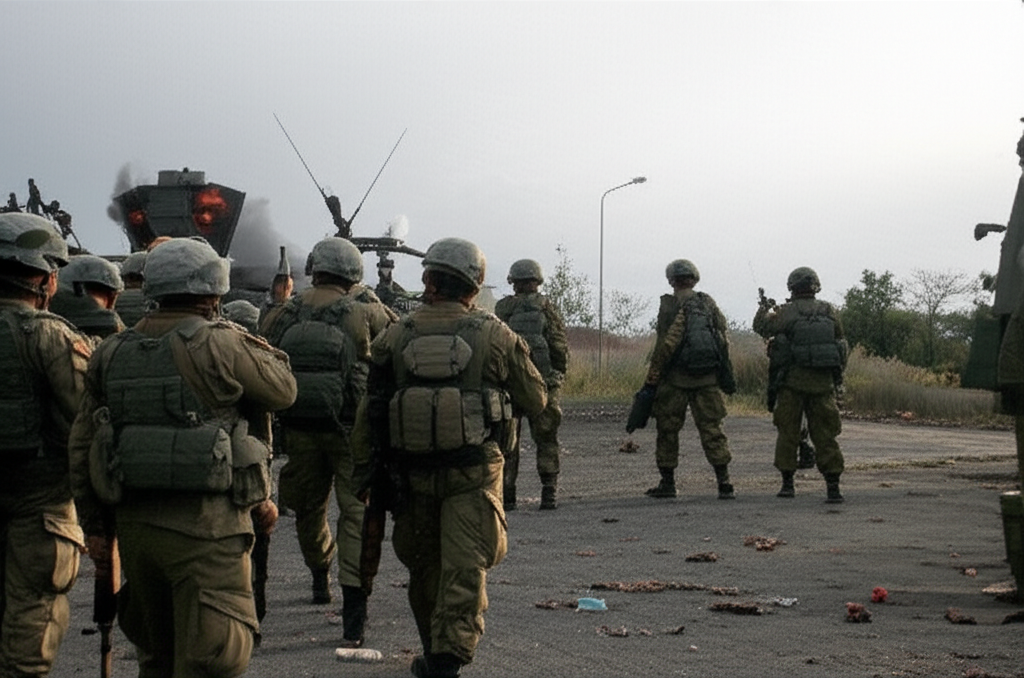
What’s Next
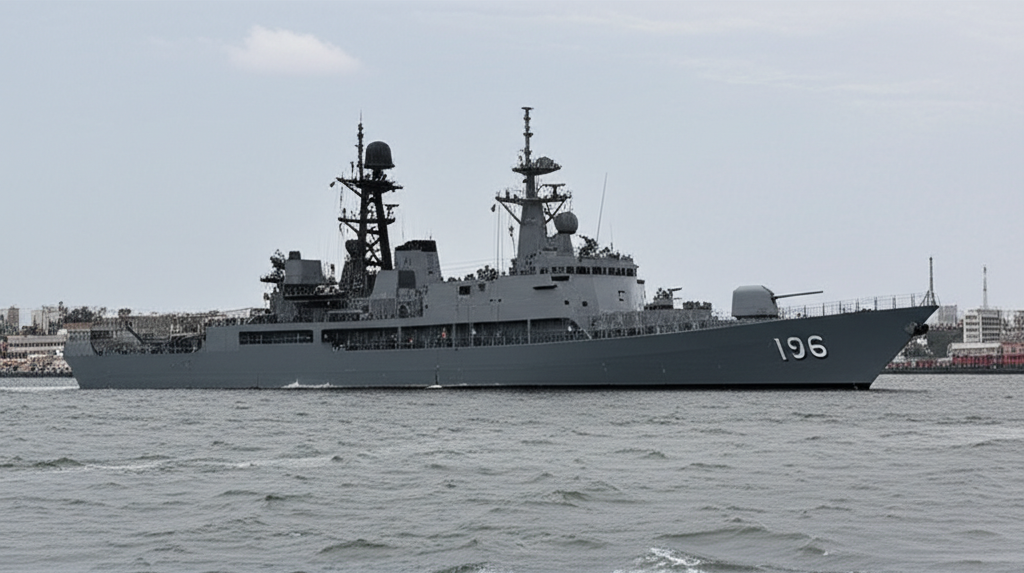
Looking ahead, the announcement of a significant escalation in the U.S. response to drug trafficking suggests a continued, possibly intensified, series of actions. The U.S. military strike on a second Venezuelan drug-trafficking boat signals an ongoing commitment to such interventions in the region. The implication of a ‘second’ vessel being targeted is that similar operations against drug-trafficking boats may occur in the future as part of this escalated strategy. This strategic shift, initiated by President Trump’s announcement, points towards sustained pressure on drug trafficking networks. The U.S. response to drug trafficking is now clearly defined by a more direct and forceful approach, which is likely to shape future engagements. This escalation implies that the U.S. military will continue to play a prominent role in combating drug trafficking, especially when such activities involve specific vessels like the Venezuelan drug-trafficking boat. The trajectory of the U.S. response suggests that interdiction efforts against drug trafficking are expected to remain robust, potentially involving further direct military action. The focus on ‘drug trafficking in the region’ indicates that subsequent operations will likely concentrate on the same geographical area and continue to target similar illicit maritime activities. The sustained attention to Venezuelan drug-trafficking boats, evidenced by this being the second strike, foreshadows a continued vigilance and proactive stance from the U.S. military. The declared ‘significant escalation’ means that the prior methods of intervention are likely being amplified or replaced by more aggressive tactics to achieve the overarching goal of disrupting drug flow. This could manifest in a continued series of military engagements, each aimed at further undermining the infrastructure of drug trafficking. The U.S. commitment, as demonstrated by this strike, reinforces the expectation of ongoing efforts to combat drug trafficking through direct military means. The future direction of the U.S. response in the region will undoubtedly be informed by this pronounced escalation, with continued emphasis on direct action against vessels involved in illegal drug shipments. The persistent nature of drug trafficking in the region necessitates an adaptable and evolving U.S. response, of which this military strike is a key indicator. The announcement itself sets a precedent for how the U.S. intends to address these challenges moving forward, suggesting a proactive and unyielding approach to interdicting illicit narcotics.
The official statement from President Trump confirming the U.S. military’s direct action against a second Venezuelan drug-trafficking boat serves as a crucial update on regional security efforts. This specific act, characterized by the administration as a significant escalation, clearly indicates a reinforced strategy in the ongoing U.S. response to drug trafficking. The comprehensive effort to counter drug trafficking within the region continues to be a priority for the United States, with military involvement now a more pronounced feature of this commitment. The targeting of a second such vessel underlines a systematic and persistent approach to tackling the flow of illegal narcotics. This decisive action reaffirms the U.S. commitment to employing all necessary means to disrupt and dismantle drug networks operating in the region. The importance of this particular event lies in its role as a clear signal of increased resolve and operational intensity from the U.S. military against drug-related maritime threats. [Source]


